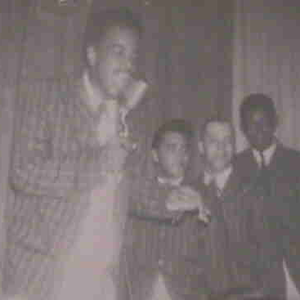
| Trackimage | Playbut | Trackname | Playbut | Trackname |
|---|---|---|---|---|
| 82189656 | Play | Solid Sender | 00:00 Tools | |
| 82189657 | Play | I'll Never Love Again | 00:00 Tools | |
| 82189659 | Play | Solid Sender - Single Version | 00:00 Tools | |
| 82189658 | Play | work work | 00:00 Tools | |
| 82189660 | Play | I'll Never Love Again - Single Version | 00:00 Tools | |
| 82189662 | Play | Work, Work | 00:00 Tools | |
| 82189661 | Play | I'll Never Love Again (Single Version) | 00:00 Tools | |
| 82189663 | Play | Tracks of My Tears (Re-Recorded) [Remastered] | 00:00 Tools | |
| 82189664 | Play | Solid Sender [Single Version] | 00:00 Tools | |
| 82189669 | Play | Solid Sender (Single Version) | 00:00 Tools | |
| 82189665 | Play | I'll Never Love Again [Single Version] | 00:00 Tools | |
| 82189667 | Play | I Never Love Again | 00:00 Tools | |
| 82189666 | Play | Solid Sender [1959] | 00:00 Tools | |
| 82189668 | Play | (Baby) Don't Leave | 00:00 Tools |

-
- 5,793
- plays
-
- 1,823
- listners
-
- 5793
- top track count
Chico Leverett was a founding artist on the Motown label, signed and recorded before a name had even been chosen for the company. Born Charles Leverett (the name under which his songs are copyrighted) in Washington, Georgia and raised in Detroit, he was an early mainstay of the Motown label, as a member of the Satintones and also the major songwriter within the group, and as a solo recording artist. The Leverett family had long been involved with gospel music -- Leverett's mother Betty and her sisters had their own gospel group, the Scott Singers, who were good enough to tour the country alongside the likes of the Soul Stirrers, even if they never recorded, and he was singing from age five. Leverett's songwriting ability manifested itself in his teens, and he was good enough to get a pair of originals recorded his first time out, after answering an ad placed by Berry Gordy Jr. in 1959, in search of singers, composers, and players. "Solid Sender" (which became Leverett's nickname) was a beautiful vehicle for Leverett's expressive baritone (backed by his fellow Satintone Robert Bateman on the bass part) with a great beat and catchy hooks all the way through. The song itself, as he told Bill Dahl in an interview, came about on a dare from his uncle, a minister, to write a secular song, which might normally be considered "the Devil's music," that he would allow played in his home. The B-side, "I'll Never Love Again", was a ballad written for Leverett's wife, and together they comprised only the fourth record ever issued by Motown. Leverett went on to cut several more sides as a member of the Satintones, through which he may have played an indirect role in one key decision by Gordy -- when the latter asked for possible names for the new record company, Leverett suggested Motor City Records, using the name of his first Satintones side, a catchy number called "Motor City"; the suggestion might not have been a home-run, but certainly sounds like it was a base-hit toward the same part of the fences. Leverett's songwriting was prodigious, as the handful of Satintones sides that he wrote or co-authored demonstrated -- he also proved that he could write-to-order when Gordy asked for a song that might appeal to listeners in the same way as the Drifters' "There Goes My Baby", and delivered "My Beloved" (which was only the third record ever issued with the Motown name on it). He left the group during the late winter of 1960. Leverett later relocated to Reading, Pennsylvania, and cut a few single sides that subsequently turned up on the Bethlehem label. He also later became an executive producer at the Music-Now label, where he wrote and produced songs for Eddie Carroll and Emanuel Laskey, as well as sides by the Dells and the Originals. Leverett rejoined the Satintones in 1990 for a one-off recording project, and resurfaced for interviews used in the booklet accompanying the 2005 release of Motown Complete Singles Vol. 1, 1959-61. Read more on Last.fm. User-contributed text is available under the Creative Commons By-SA License; additional terms may apply.